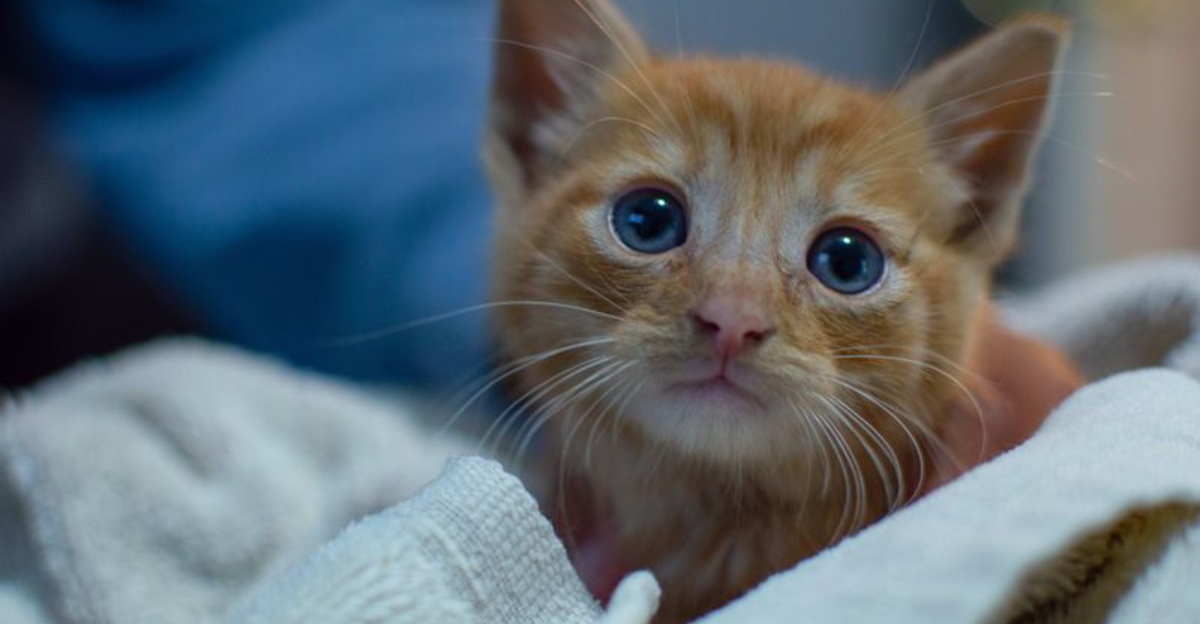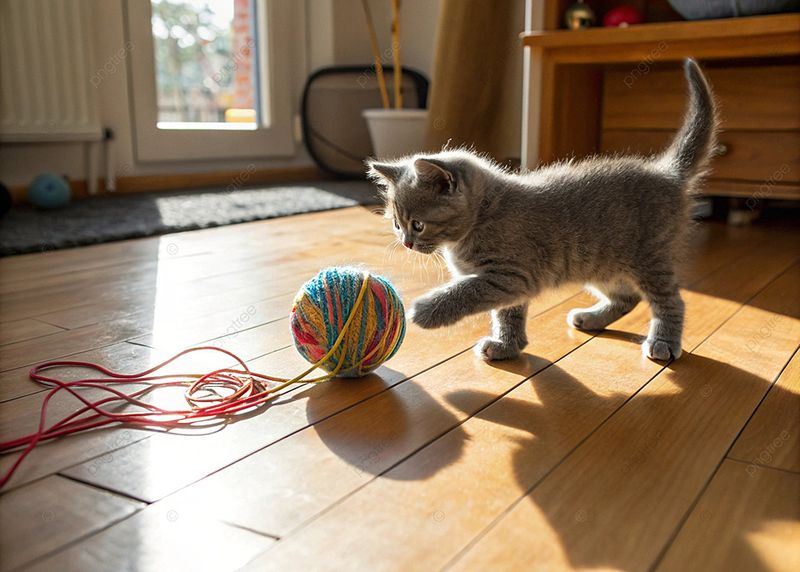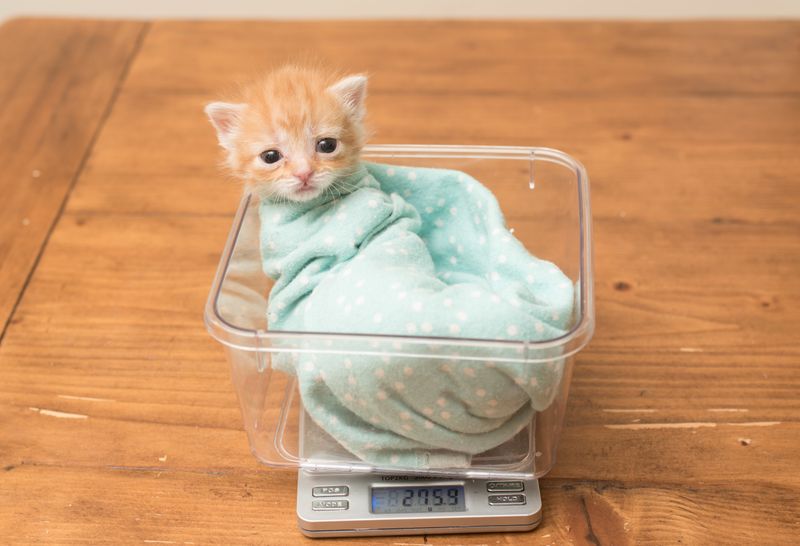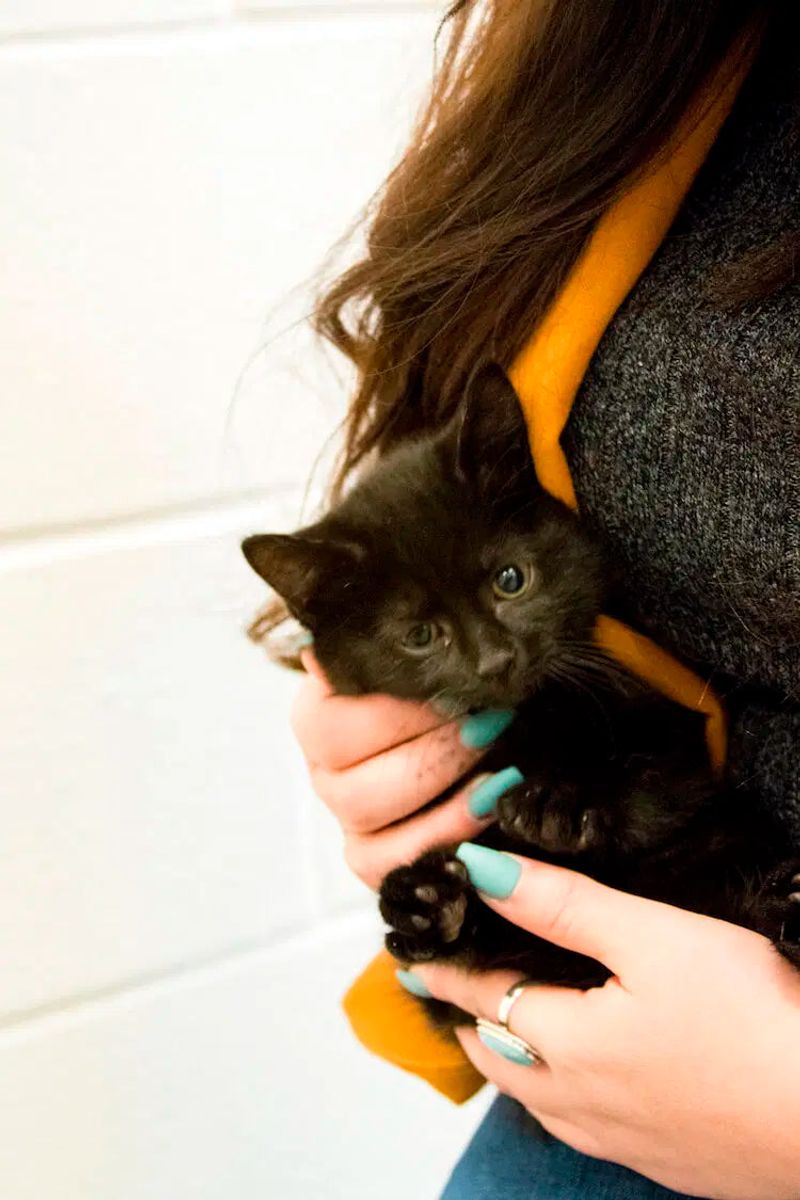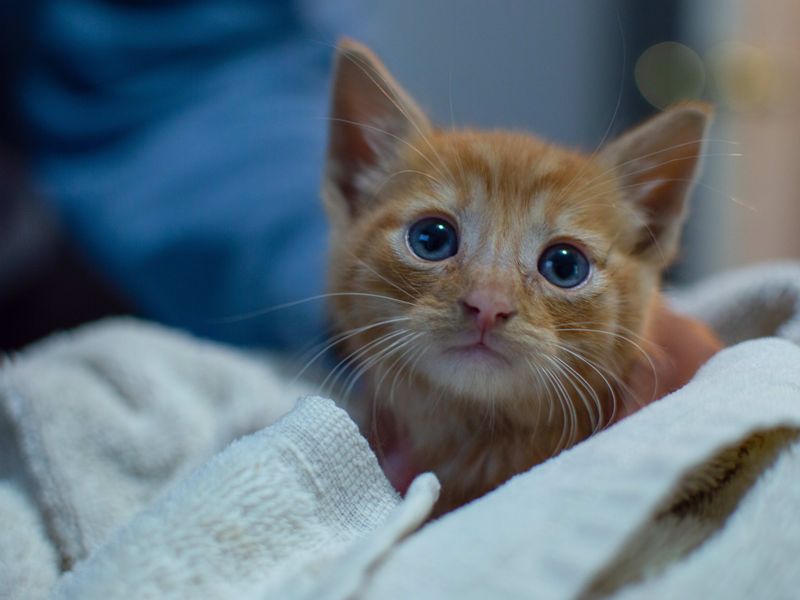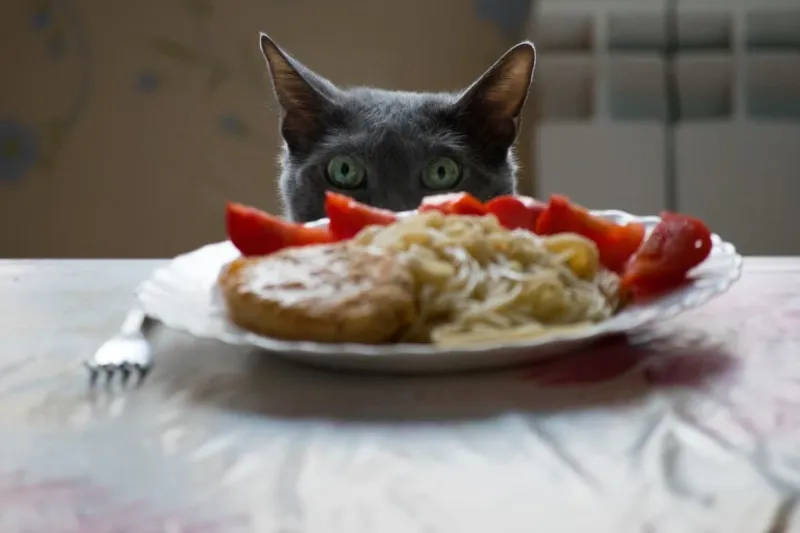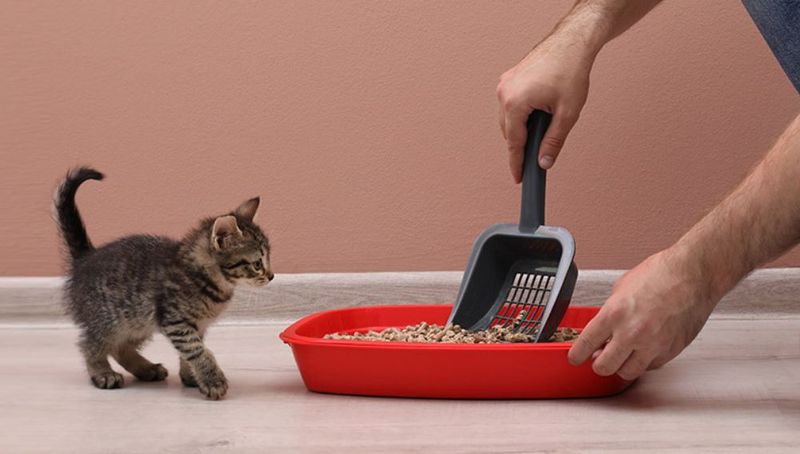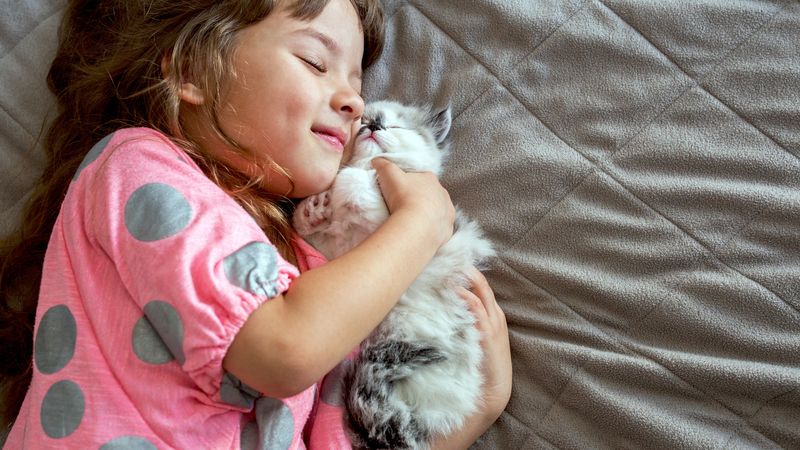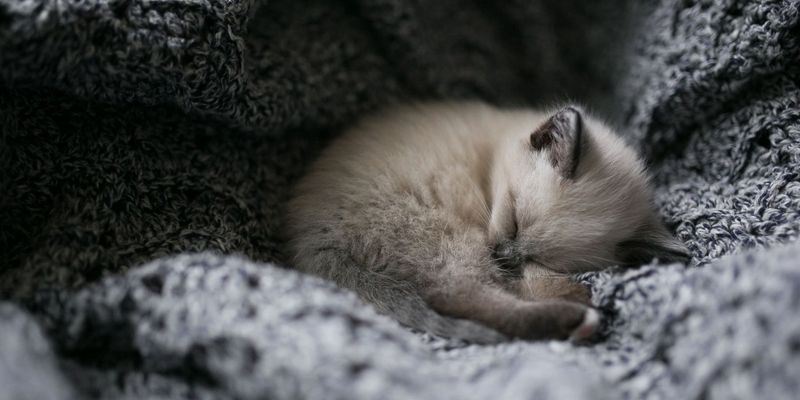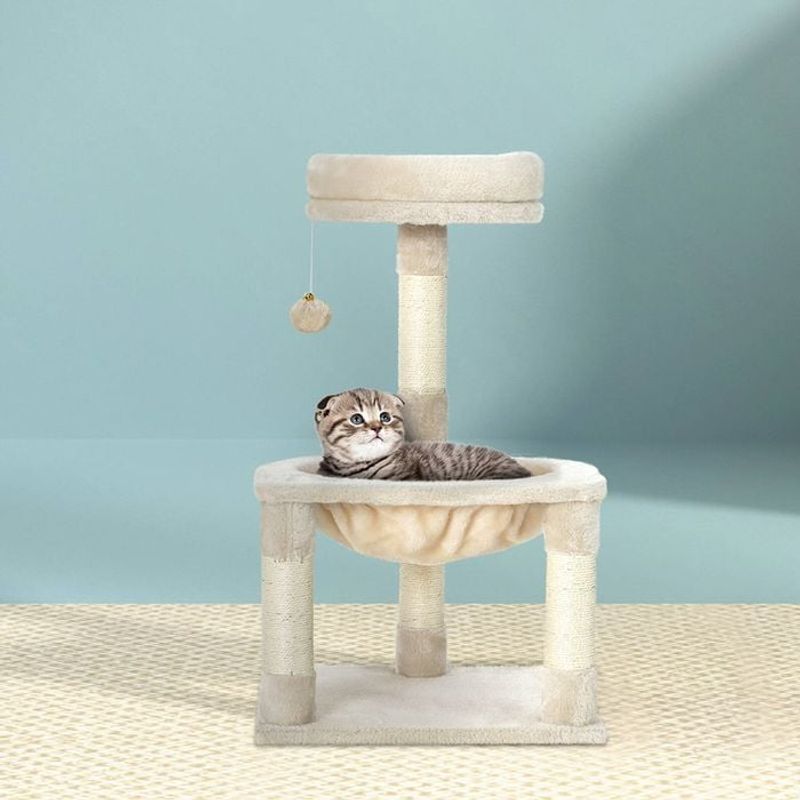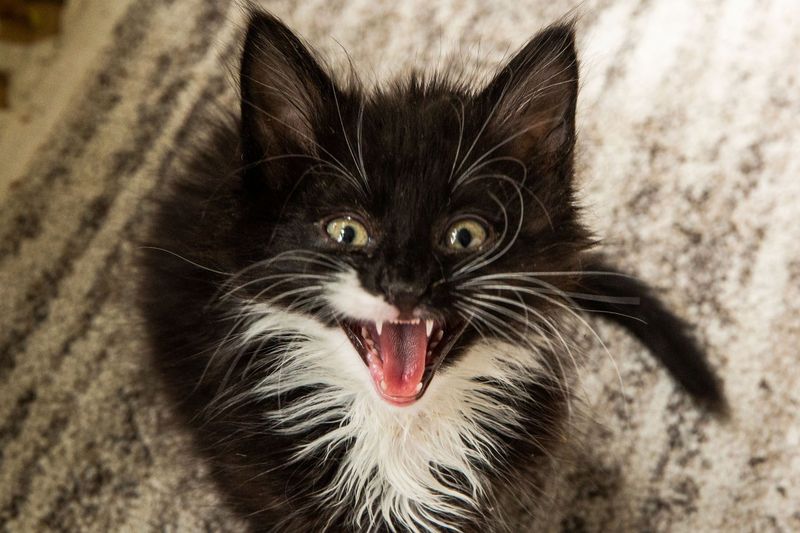📖 Table of Content:
Welcoming a kitten into your home is one of life’s purest joys, but it also comes with its fair share of questions and concerns. As a pet parent, you naturally want reassurance that your kitten is not just surviving, but truly thriving. Since kittens grow rapidly and go through various developmental stages, it’s important to observe them closely to ensure they’re healthy, happy, and on the right track.
Unlike adult cats, kittens can’t always communicate their needs clearly, making it crucial to rely on physical and behavioral signs. From the way they interact with their surroundings to their eating habits and litter box routines, your kitten’s daily activities hold valuable clues about their overall well-being. Recognizing these signs early can help you build a strong foundation for their lifelong health and happiness.
In this article, we’ll explore ten comforting and reliable indicators that your kitten is doing exceptionally well. Whether you’re a first-time cat owner or a seasoned feline friend, these signs will help you feel more confident about your kitten’s progress. By understanding what a thriving kitten looks and acts like, you can better support their growth, play, and bonding experiences during this crucial stage of life.
1. Playful and Curious Behavior
Nothing screams kitten vitality quite like a flurry of paw swipes, daring leaps, and zoomies across the living room floor. Kittens are naturally driven to explore their world, and when they feel safe and energized, this curiosity manifests in playful antics. A thriving kitten often invents its own games, like batting at a crumpled paper ball or stalking a feather toy as though it’s prey. These moments aren’t just entertaining—they’re essential for building muscle tone, coordination, and confidence. Even solo play can signal that a kitten feels mentally stimulated and physically well. If your kitten initiates play frequently, interacts enthusiastically with people and toys, and shows no signs of lethargy, you’re witnessing one of the clearest signs of a happy, healthy young cat. It’s their way of telling you they feel secure, energized, and ready to engage with their environment.
2. Steady Weight Gain and Growth
Consistent, healthy weight gain is a vital metric during the early weeks and months of kittenhood. You may not notice their growth overnight, but tracking their weight weekly will reveal the steady progress expected of a thriving kitten. Generally, kittens should gain about 10–15 grams each day during their first month and continue growing steadily afterward. A plump belly (without bloating), filled-out limbs, and visible muscle tone all point to good nutrition and development. If your kitten feels heavier when picked up or outgrows its bed and collar, that’s a great sign. However, any signs of stunted growth, weight loss, or poor appetite should prompt a vet visit. Growth isn’t just about size—it reflects the successful integration of all the kitten’s systems working in harmony.
3. Clean and Shiny Coat
Radiant fur can often tell you more about your kitten’s health than any vet chart. A thriving kitten will have a smooth, soft, and slightly glossy coat that feels pleasant to the touch. This indicates not only good grooming habits but also a balanced diet rich in essential fatty acids and proteins. Self-grooming behaviors start developing early, and kittens that feel comfortable and well will often be seen licking their paws and fur. If you notice that their coat is dull, matted, or falling out in patches, that could indicate stress, parasites, or poor nutrition. A clean coat also reflects that the kitten is not overly anxious or unwell, both of which can affect grooming behaviors. In short, a beautiful coat is a visual snapshot of inner wellness.
4. Bright, Clear Eyes
A kitten’s eyes are not only captivating—they’re windows into their health. From about two weeks old, their eyes begin to open and evolve, eventually becoming wide and expressive as they grow. Eyes that are consistently clear, moist, and free of discharge show that your kitten is fighting off infection and developing properly. Squinting, excessive blinking, or red rims may suggest discomfort or illness that needs attention. A thriving kitten will be alert and curious, using their eyes to track movement and investigate new things. Healthy eye development also enhances depth perception and coordination during play. By keeping an eye on their eyes, you’re watching more than just their gaze—you’re witnessing signs of vitality.
5. Strong Appetite
Eager meal times are usually a very good sign. A kitten that bounds over at the sound of food preparation or meows insistently for their next feeding is likely doing well. Proper appetite supports essential growth and energy needs during the early weeks and months. Whether you’re bottle-feeding, offering wet food, or transitioning to kibble, your kitten should eat eagerly and consistently. Picky eating, refusal to eat, or sudden changes in feeding behavior could point to underlying issues. A thriving kitten often licks the bowl clean and then plays or rests contentedly afterward. Appetite is not just about food—it’s a sign of comfort, health, and trust in their environment.
6. Regular, Firm Litter Box Habits
Litter box behavior can be a surprisingly accurate health barometer. A kitten that uses the litter box reliably and produces well-formed stools and clear urine is typically thriving. Early litter training success shows that your kitten is cognitively developing, and that they feel clean and secure. Any signs of diarrhea, constipation, or going outside the box warrant closer observation and potentially a vet visit. A healthy kitten should visit the litter box several times daily, and cleaning the tray gives you a chance to monitor for changes. Consistency in elimination habits supports their growing independence. It’s one of the quiet ways they show that everything inside is functioning smoothly.
7. Sociability and Bonding
Emotional well-being is just as important as physical health, and a thriving kitten often shows it through social interaction. Kittens who feel safe will seek out your attention, curl up beside you, or even nuzzle your face. These behaviors mean your kitten is building trust, attaching to you, and feeling emotionally secure in their environment. Social development is influenced by early handling, gentle play, and positive reinforcement. If your kitten runs to greet you or follows you from room to room, it’s a strong sign of affection and mental balance. Timid or skittish behavior can be normal in new situations, but increased comfort over time is reassuring. Affection isn’t just adorable—it’s also a signal that your kitten feels at home.
8. Peaceful Sleep Patterns
Long, restful naps are essential for a growing kitten’s body and brain. If your kitten spends hours curled up in cozy spots, twitching slightly in their sleep, it’s a good sign their nervous system is developing well. Kittens often sleep up to 20 hours a day, especially after bursts of play, and should awaken refreshed and alert. Consistent nap routines, such as sleeping after meals or during quiet times, suggest a predictable and comforting home environment. Sudden sleep disturbances, constant meowing, or restlessness at night might indicate discomfort or separation anxiety. A thriving kitten sleeps peacefully because they feel physically well and emotionally safe. Watching them doze off with a full belly and a relaxed posture is a sign of perfect contentment.
9. Steady Coordination and Movement
Physical coordination improves rapidly during kittenhood, and watching that progression is both fascinating and telling. In the beginning, your kitten might wobble or fall during play, but steady improvement signals muscle development and neurological health. A thriving kitten practices climbing, sprinting, and even daring jumps from furniture as they build confidence. Every leap, dash, and paw swipe refines their motor skills and strengthens their bones and joints. If you notice clumsiness that doesn’t resolve or a reluctance to move, it might warrant a closer look. But generally, kittens that play with precision and agility are experiencing normal development. Active movement reflects a strong connection between brain and body.
10. Healthy Teeth and Gums
Oral health is often overlooked, but it starts from the earliest weeks. A thriving kitten should have small, clean, white teeth and pink, moist gums. These signs indicate proper teething, a healthy immune response, and balanced nutrition. While some light chewing or gum sensitivity is normal during teething, excessive drooling or bad breath may hint at dental issues. You can begin early checks by gently lifting your kitten’s lips during cuddle time, looking for symmetry and cleanliness. As they begin nibbling toys or fingers, their use of teeth shows curiosity and normal growth. Strong dental health also lays the groundwork for lifelong eating habits and comfort.
